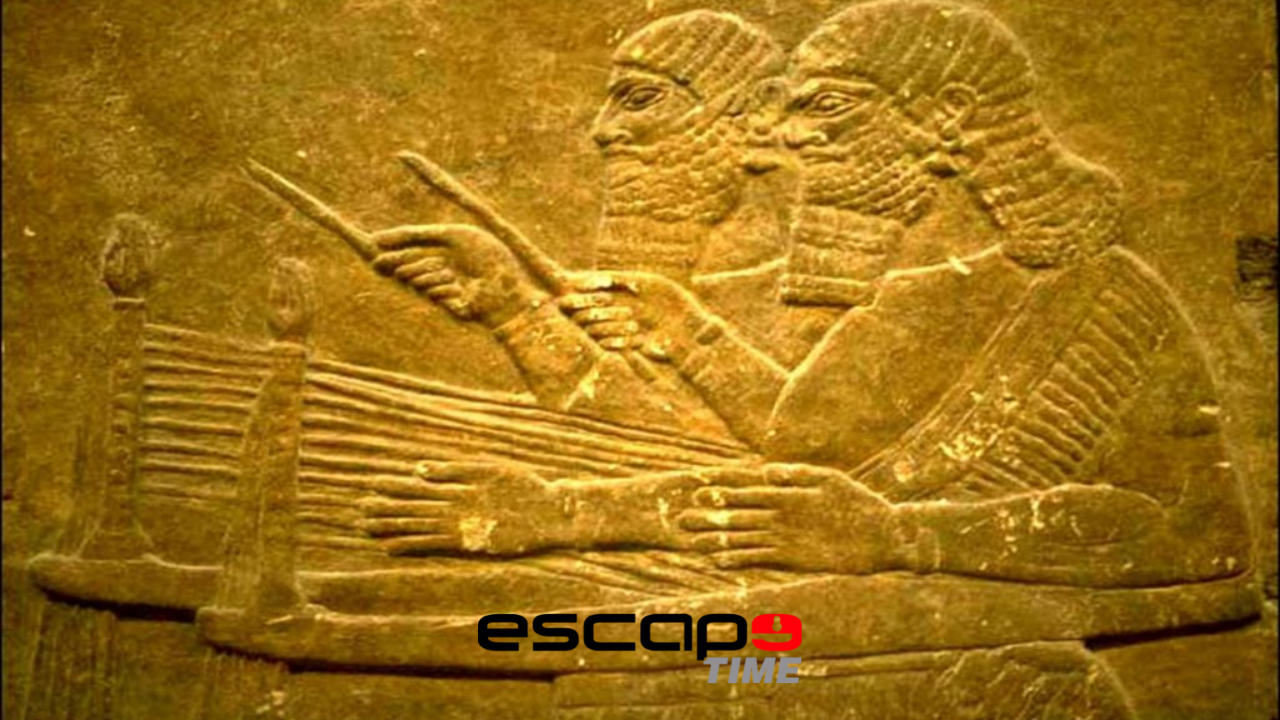
#EscapeCult - The oldest song in the world
At first, the oldest fragment of musical notation is a Sumerian clay tablet about 4,000 years old, with instructions for playing a hymn in honor of the ruler Lipit-Ishtar. However, in relation to ancient music itself, the oldest known copy was discovered in the 1950s, in the city of Ugarit, currently Ras Shamra, in northern Syria.
Archaeologists have found several 3,400-year-old clay tablets. These tablets were carved with cuneiform characters from the Hurrite language – belonging to the Hurrite people, who lived in ancient Mesopotamia.
Thus, the leading candidate for the oldest song in the world is called “Hurrian Hymn #6”, and it was an ode to the goddess Nikkal. Along with it were found instructions on its musical notation and how to play it on a nine-string lyre, typical of that period. As a result of the fact that it was written using a different Musical Note System than is most commonly used today, there are many different possible interpretations and it is impossible to know for sure what this song originally sounded like.
“An estimated 3,400 years old, this relic has been in Damascus since 1955, after its discovery by a group of French archaeologists in the coastal town of Ugarit … The artifact records the Hymn Hurita, a song addressed to the goddess Nikkal [wife of the god of the moon]. Ugaritans worshiped various deities, each specific to various parts of their lives. Nikkal, meaning “Great Lady and Fruitbearer”, was the goddess of the orchards… For the time being, at least, the exact lyrical content of the Hurrian Hymn remains partially hidden, although a translation by Hans-Jochen Thiel in 1977 is considered the closest the spirit of the original,” says expert Stephen Starr.
The clay tablet known as H6 is known to record a song that tells the story of a young woman who cannot have children and thinks it is punishment for her sins. She goes out at night to pray to the goddess Nikkal, the goddess of the moon and fertility. The young woman takes with her a small can of sesame seeds or oil as an offering to the goddess so that she can help her with her desire to be a mother.
Here is a partial translation of the song, from the remaining part of the original Hurrian text:
(Once I have) loved (the divinity), she will love me in her heart,
the offering I bring can fully cover my sin,
bringing in sesame oil might work on my behalf and I can …
Barren ones can become fertile.
They can produce grain.
She, the wife, will have (children) from the father.
May she, who has not yet had children, give birth to them. "
You can listen to the song here: https://www.youtube.com/watch?v=tAc2KDNHEw4
Source: https://voc.link/as-musicas-mais-antigas-do-mundo/
